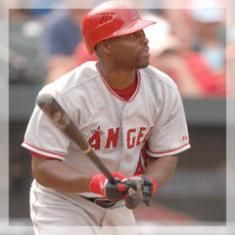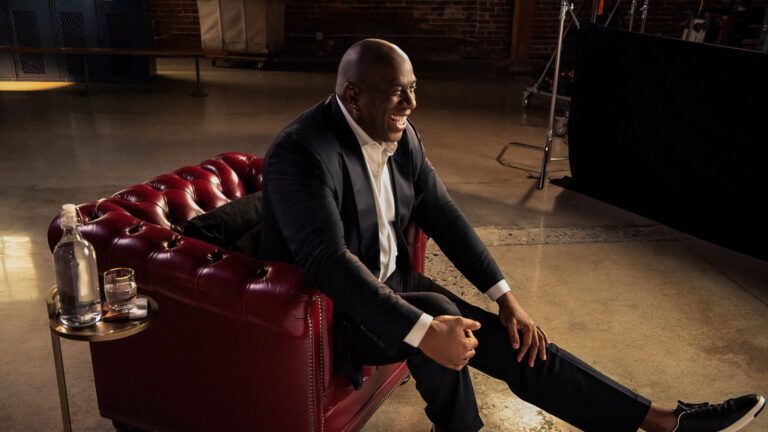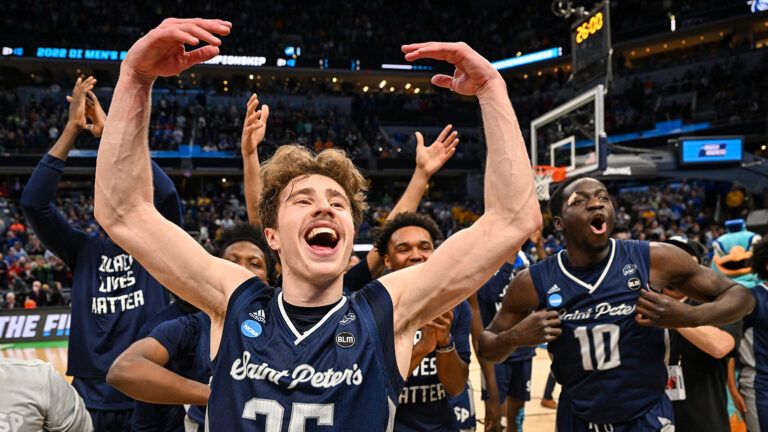The first time Torii Hunter saw his father smoke crack cocaine, he was seven years old. He didn't understand what his dad was doing.
But that episode marked the beginning of a lifelong struggle for Hunter, a struggle of coping with the heartache of knowing that the father he loves is a drug addict. And a struggle of doing everything he could to get his father to give up drugs, only to fail time after time.
Hunter possessed the inner strength and determination to overcome growing up in a drug-sated household and neighborhood to become a major league baseball player. He's the brilliant outfielder for the Los Angeles Angels, a man who has won seven Gold Gloves as the best defensive center fielder in the American League and twice played on the league's All-Star team. But it never was easy.
His struggle entailed living without electricity and having to scrounge for food in his Pine Bluff, Arkansas neighborhood. "If you have someone doing drugs," says Hunter of his father, "that makes you poor because they take all the money, the lights are turned off, there's no food in the house.
When you're sick like that, you're not thinking about anything else but that sickness. You're not thinking about your family or your wife or your kids."
The struggle for Hunter involved walking as a boy through the streets with his three brothers, searching in local crack houses to find his father and coax him back home. And there was the humiliation, fear and sense of loss.
"One day my Chicago Bulls jacket was missing," recalls Hunter. "I knew my dad had gone, but I didn't think he would wear my jacket. So I just chalked it up to somebody stealing it.
Then, like a week later, I woke up one morning and saw my jacket hanging over the edge of a chair in the dining room. I was like, 'Wow, there's my Chicago Bulls jacket.' And then I saw my dad lying on the couch. And I said, 'Oh, okay, he had it all that time.'
So I put it on and left for school. I raised my hand [in class] sometime that day, and something fell out. It was a [crack cocaine] pipe. I picked it up really quick, and I raised my hand and told the teacher I needed to use the restroom. She said all right.
So I went to the restroom, wiped my finger prints off the pipe, opened up the back of the toilet, put it under there and closed the toilet up, and left it there. I was in tears. I was in the 8th grade, 13 years old."
That incident, says Hunter, is one of the PG-rated ones that he can relate about his father's drug addiction and the disheartening escapades he and his brothers embarked on regularly while growing up.
Their mother—who was a rock for Hunter and his brothers—"would sit up crying at night and give us hugs. She always told us, 'Don't ever do your kids like this.' and, 'Be the best father you can.'"
And that's what Hunter has tried to do with his life. He's tried to be the kind of father for his sons that his own father was never able to be for him. "I tell them, 'You know the way I treat you guys, it's because it's the way I wasn't treated. I was a man before I was supposed to be a man.'
I want my kids to be kids…I tell them, 'I spoil you guys, but I also help you with the homework. Because I didn't have that. And I want to give you everything that I didn't have.' So I think my dad taught me a lesson, without knowing he taught me a lesson."
His father's behavior also gave Hunter the inspiration to move beyond his drug-infested neighborhood, to build something positive out of his life.
"I was tired of eating with candles," he explains. "I was tired of not eating at all. I was tired of knocking on people's doors asking for bread or sugar or syrup or hot dogs or anything." He saw that baseball could give him the opportunity to help his family—and his father.
"My motivation was to get my family out of poverty," says Hunter "I wanted to be their hero, the first guy to help my family out." Once he was financially able, the 32-year-old baseball player tried giving his father money and sending him to rehab programs to help him escape his addiction. But while rehab would take his father off drugs for a time, he would always relapse.
"He ain't never off drugs," says the son. "Programs don't work. I don't care what you say." What does help, though, is vigilance and love, says Hunter: "Just love and being there for him and being supportive, watching him, keeping him around family, and watching every move. That's hard when you play professional baseball."
Hunter has moved his father to North Dallas, where he and other family members now live, so they can watch over his father and try to keep him from the drug culture. "But it's hard to keep tabs on him," Hunter concedes. "He's been in rehab like 10 times. And he always falls back."
But Hunter still loves his father. He loves the way he is when he's off drugs. "When he's clean, he's the coolest guy in the world," says the ballplayer. "I'm like, 'This is the dad I've been looking for.' He's clean for a year, he's outside playing basketball with you, he's taking you shopping or different things like that. And then, boom, once he's missing in action, that's when you know he's using again."
Hunter says the ballpark is a safe haven for him, one of the only places he can put aside thoughts of his father's addiction. He also gains moral and emotional support from his family, as well as from his religion.
"My mom raised us in the church," Hunter says. "So whenever I got down, whether it was off the field or on the field, I always went to my bible. It kept me strong. That's what kept me on the right path, just reading my bible and staying with the Lord."





